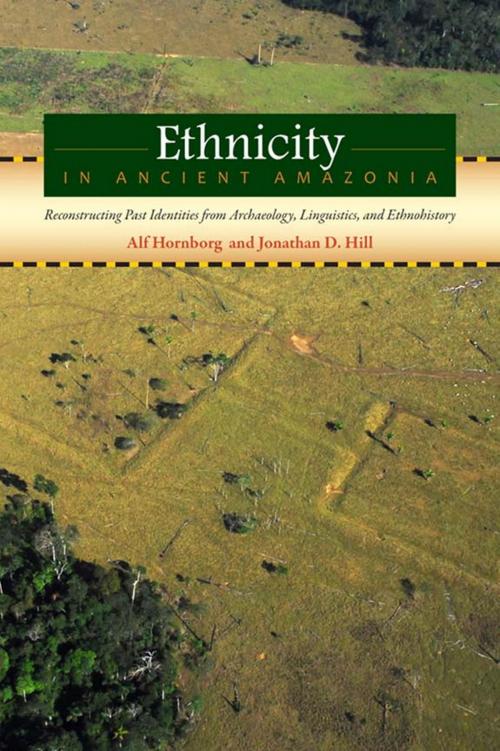Ethnicity in Ancient Amazonia
Reconstructing Past Identities from Archaeology, Linguistics, and Ethnohistory
Nonfiction, Social & Cultural Studies, Social Science, Archaeology, Anthropology| Author: | ISBN: | 9781607320951 | |
| Publisher: | University Press of Colorado | Publication: | October 31, 2011 |
| Imprint: | University Press of Colorado | Language: | English |
| Author: | |
| ISBN: | 9781607320951 |
| Publisher: | University Press of Colorado |
| Publication: | October 31, 2011 |
| Imprint: | University Press of Colorado |
| Language: | English |
A transdisciplinary collaboration among ethnologists, linguists, and archaeologists, Ethnicity in Ancient Amazonia traces the emergence, expansion, and decline of cultural identities in indigenous Amazonia.
Hornborg and Hill argue that the tendency to link language, culture, and biology--essentialist notions of ethnic identities--is a Eurocentric bias that has characterized largely inaccurate explanations of the distribution of ethnic groups and languages in Amazonia. The evidence, however, suggests a much more fluid relationship among geography, language use, ethnic identity, and genetics. In Ethnicity in Ancient Amazonia, leading linguists, ethnographers, ethnohistorians, and archaeologists interpret their research from a unique nonessentialist perspective to form a more accurate picture of the ethnolinguistic diversity in this area.
Revealing how ethnic identity construction is constantly in flux, contributors show how such processes can be traced through different ethnic markers such as pottery styles and languages. Scholars and students studying lowland South America will be especially interested, as will anthropologists intrigued by its cutting-edge, interdisciplinary approach.
A transdisciplinary collaboration among ethnologists, linguists, and archaeologists, Ethnicity in Ancient Amazonia traces the emergence, expansion, and decline of cultural identities in indigenous Amazonia.
Hornborg and Hill argue that the tendency to link language, culture, and biology--essentialist notions of ethnic identities--is a Eurocentric bias that has characterized largely inaccurate explanations of the distribution of ethnic groups and languages in Amazonia. The evidence, however, suggests a much more fluid relationship among geography, language use, ethnic identity, and genetics. In Ethnicity in Ancient Amazonia, leading linguists, ethnographers, ethnohistorians, and archaeologists interpret their research from a unique nonessentialist perspective to form a more accurate picture of the ethnolinguistic diversity in this area.
Revealing how ethnic identity construction is constantly in flux, contributors show how such processes can be traced through different ethnic markers such as pottery styles and languages. Scholars and students studying lowland South America will be especially interested, as will anthropologists intrigued by its cutting-edge, interdisciplinary approach.















